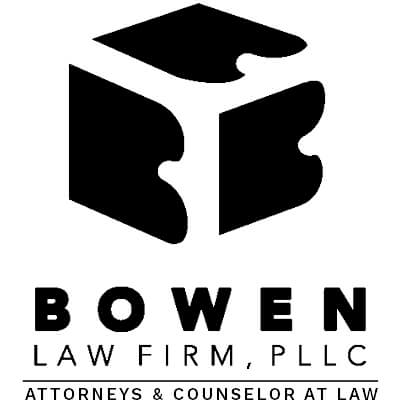REFRESH YOUR MEMORY
Before you testify, try to picture the scene, the objects, the area, the distances and exactly what happened. This will assist you in recalling the facts more accurately when asked a question. If the question is about distances or time, and if your answer is only an estimate, be sure you say it is only an estimate. Beware of suggestions by attorneys as to distance or times when you do not recall the actual time or distance. Do not agree with their estimate unless you independently arrive at the same estimate.
SPEAK IN YOUR OWN WORDS
Don’t try to memorize what you are going to say. Doing so will make your testimony sound “pat” and unconvincing, instead, be yourself. Prior to trial go over in your own mind those matters about which you will be questioned.
SPEAK CLEARLY
Present your testimony clearly, slowly, and loud enough so the juror farthest away can easily hear and understand everything you say. Avoid distracting mannerisms such as chewing gum while testifying. Although you are responding to the questions of an attorney, remember that the questions are really for the jury’s benefit. Additionally, smoking is not allowed.
APPEARANCE IS IMPORTANT
A neat appearance and proper dress in court are important. The trouble with an appearance that seems very casual or very dressy is it will distract the jury during the brief time you’re on the stand and they won’t concentrate on your testimony.
DO NOT DISCUSS THE CASE
Jurors who are or will be sitting on the case in which you are a witness may be present in the same public areas you will be. For that reason, you MUST NOT discuss the case with anyone.�? Remember too, jurors may have an opportunity to observe how you act outside of the courtroom.
BE A RESPONSIBLE WITNESS
When you are called into court for any reason, be serious. Avoid saying anything about the case until you are actually on the witness stand.
TELL THE TRUTH
Most important of all, you are sworn to TELL THE TRUTH. Tell it. Every true fact should be readily admitted. Do not stop to figure out whether your answer will help or hurt either side. Just answer the questions to the best of your memory.
DO NOT EXAGGERATE
Don’t make overly broad statements you may have to correct. Be particularly careful in responding to a question that begins, “Wouldn’t you agree that…?” The explanation should be in your own words. Do not allow an attorney to put words in your mouth.
LISTEN CAREFULLY TO AVOID CONFUSION
When a witness gives testimony, they are first asked some questions by the attorney who called them to the stand. For you, this is an Opposing Attorney. The questions asked are for the purpose of “direct examination.” When you are questioned by the opposing attorney, it is called “cross examination.” This process is sometimes repeated several times in order to clearly address all aspects of the questions and answers. The basic purpose of direct examination is for you to tell the judge and jury what you know about the case. The basic purpose of cross examination is to raise doubts about the accuracy of your testimony. Don’t get mad if you feel you are being doubted during the cross examination. The opposing counsel is just doing their job.
KEEP YOUR COOL
A witness who is angry may exaggerate or appear to be less than objective or emotionally unstable. Keep your temper. Always be courteous, even if the attorney questioning you appears discourteous. Don’t appear to be a “wise guy” or you will lose the respect of the judge and jury.
RESPOND ORALLY TO THE QUESTIONS
Do not nod your head for a “yes” or “no” answer. Speak aloud so the court reporter or recording device can hear and record your answer.
THINK BEFORE YOU SPEAK
Listen carefully to the questions you are asked. If you don’t understand the question, have it repeated, then give a thoughtful, considered answer. DO NOT GIVE AN ANSWER WITHOUT THINKING. While answers should not be rushed, neither should there be any unnaturally long delay to a simple question if you know the answer.
EXPLAIN YOUR ANSWER
Explain your answer if necessary. Give the answer in your own words, and if a question can’t be truthfully answered with a “yes” or “no,” it’s O.K. to explain your answer.
CORRECT YOUR MISTAKES
If your answer was not correctly stated, correct it immediately. If your answer was not clear, clarify it immediately. It is better to correct a mistake yourself than to have the attorney discover an error in your testimony. If you realize you have answered incorrectly, say, “May I please correct something I said earlier?” Sometimes witnesses give inconsistent testimony – something they said before doesn’t agree with something they said later. If this happens to you, don’t get flustered. Just explain honestly why you were mistaken. The jury, like the rest of us, understands people make honest mistakes.
DO NOT VOLUNTEER INFORMATION
ONLY answer the questions asked of you. Do not volunteer information not actually asked for. Additionally, the judge and the jury are interested in the facts you have observed or personally know about. Therefore, don’t give your conclusions and opinions, and don’t state what someone else told you, unless you are specifically asked.
DON’T SET YOURSELF UP FOR IMPEACHMENT
Unless certain, don’t say “That’s all of the conversation” or “Nothing else happened.” Instead say, “That’s all I recall,” or “That’s all I remember happening.” It may be after more thought or another question, you will remember something important.
OBJECTIONS BY COUNSEL
Stop speaking instantly when the judge interrupts you or when an attorney objects to a question.�? Wait for the judge to tell you to continue before answering any further.
BE POSITIVE AND CONFIDENT
Give positive, definite answers when at all possible. Avoid saying, “I think,” “I believe,” or “In my opinion” if you can answer positively. If you do know, then say so. You can be positive about important things which you would naturally remember. If you are asked about little details which a person naturally would not remember, it is best just to say so if you don’t remember.�? Don’t make up an answer.
FOLLOW COURTROOM RULES
When being questioned by defense counsel, don’t look at the Assistant U.S. Attorney or at the Judge for help in answering the question. If the question is improper, the Assistant U.S. Attorney will object. If a question is asked and there is no objection, answer it. Never substitute your ideas of what you believe the rules of evidence are.
DO NOT DISCUSS YOUR TESTIMONY
After a witness has testified in court, he/she should not tell other witnesses what was said during the testimony until after the case is completely over. Thus, do not ask other witnesses about their testimony and do not volunteer information about your own testimony.
RECAP
- REFRESH YOUR MEMORY
- SPEAK IN YOUR OWN WORDS
- SPEAK CLEARLY
- APPEARANCE IS IMPORTANT
- DO NOT DISCUSS THE CASE
- BE A RESPONSIBLE WITNESS
- TELL THE TRUTH
- DO NOT EXAGGERATE
- LISTEN CAREFULLY TO AVOID CONFUSION
- KEEP YOUR COOL
- RESPOND ORALLY TO THE QUESTIONS
- THINK BEFORE YOU SPEAK
- EXPLAIN YOUR ANSWER
- CORRECT YOUR MISTAKES
- DO NOT VOLUNTEER INFORMATION
- DON’T SET YOURSELF UP FOR IMPEACHMENT
- QUIT SPEAKING WHEN COUNSEL OBJECTS
- BE POSITIVE AND CONFIDENT
- FOLLOW COURTROOM RULES
- DO NOT DISCUSS YOUR TESTIMONY

